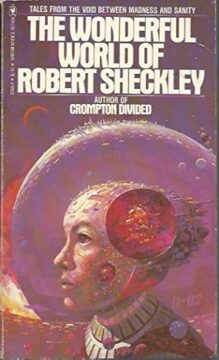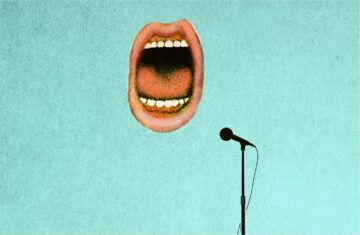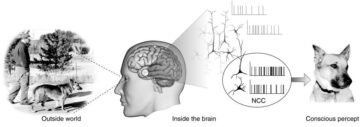Enjoying the content on 3QD? Help keep us going by donating now.
Category: Recommended Reading
Unreasonably Effective AI With Demis Hassabis
Enjoying the content on 3QD? Help keep us going by donating now.
How Renaissance Art Found Its Way to American Museums
Ashley Couto at JSTOR Daily:
 Although art historical writing had flourished since Giorgio Vasari’s Lives of the Artists, art consumers of the nineteenth century were particularly reliant on the expertise of the artists and art enthusiasts who published and became authorities on specific subjects. They needed guidance on what was best to buy.
Although art historical writing had flourished since Giorgio Vasari’s Lives of the Artists, art consumers of the nineteenth century were particularly reliant on the expertise of the artists and art enthusiasts who published and became authorities on specific subjects. They needed guidance on what was best to buy.
As Manfred J. Holler and Barbara Klose-Ullmann posit, the American taste for medieval and Renaissance art was bolstered, in part, by James Jackson Jarves. An American art critic based in Florence, Jarves enjoyed privileged access to works and documents from the Renaissance era. In his essay “A Lesson for Merchant Princes,” from Italian Rambles, published in 1883, Jarves encouraged Americans to follow in the footsteps of the fifteenth-century banker and prominent Florentine Giovanni Rucellai and invest their fortunes in art. In Rucellai’s eyes, there were three key reasons to become a patron: to honor God, to honor one’s city, and to secure one’s immortality by means of cultural legacy. These aspirations captivated a small sector of affluent Americans.
more here.
Enjoying the content on 3QD? Help keep us going by donating now.
Heman Bekele Is TIME’s 2024 Kid of the Year: Dreaming of a cure
Jeffrey Kluger in Time Magazine:
 Heman Bekele whipped up the most dangerous of what he called his “potions” when he was just over 7 years old. He’d been conducting his own science experiments for about three years by that point, mixing up whatever he could get his hands on at home and waiting to see if the resulting goo would turn into anything. “They were just dish soap, laundry detergent, and common household chemicals,” he says today of the ingredients he’d use. “I would hide them under my bed and see what would happen if I left them overnight. There was a lot of mixing together completely at random.”
Heman Bekele whipped up the most dangerous of what he called his “potions” when he was just over 7 years old. He’d been conducting his own science experiments for about three years by that point, mixing up whatever he could get his hands on at home and waiting to see if the resulting goo would turn into anything. “They were just dish soap, laundry detergent, and common household chemicals,” he says today of the ingredients he’d use. “I would hide them under my bed and see what would happen if I left them overnight. There was a lot of mixing together completely at random.”
But soon, things got less random. For Christmas before his 7th birthday, Heman was given a chemistry set that came with a sample of sodium hydroxide. By then, he had been looking up chemical reactions online and learned that aluminum and sodium hydroxide can together produce prodigious amounts of heat. That got him thinking that perhaps he could do the world some good. “I thought that this could be a solution to energy, to making an unlimited supply,” he says. “But I almost started a fire.”
More here.
Enjoying the content on 3QD? Help keep us going by donating now.
Here’s How Intermittent Fasting Impacts Your Body
Allison Futterman in Discovery:
 In the mid-1960s, a Scottish man named Angus Barbieri fasted for more than a year. For a total of 382 days, he survived on liquids, vitamins, and some yeast, ultimately losing 276 pounds. He undertook the fast (under medical supervision) to lose weight in his pursuit of better health. The practice of fasting for health benefits dates back to the fifth century B.C.E. when Hippocrates recommended fasting for certain illnesses. By the 1800s, fasting was being studied for its potential health effects.
In the mid-1960s, a Scottish man named Angus Barbieri fasted for more than a year. For a total of 382 days, he survived on liquids, vitamins, and some yeast, ultimately losing 276 pounds. He undertook the fast (under medical supervision) to lose weight in his pursuit of better health. The practice of fasting for health benefits dates back to the fifth century B.C.E. when Hippocrates recommended fasting for certain illnesses. By the 1800s, fasting was being studied for its potential health effects.
What Is Intermittent Fasting?
Intermittent fasting (IF) is the practice of restricting eating to certain times, also known as time-restricted eating. After a substantial time without eating, the body uses up its glycogen (sugar) stores and starts burning fat. This process is known as metabolism switching. This leads to increased ketone levels, which stimulates weight loss. In addition to weight loss, IF can positively influence other aspects of health.
More here.
Enjoying the content on 3QD? Help keep us going by donating now.
Thursday Poem
A Man Said to the Universe
A man said to the Universe
“Sir, I exist!”
“However,” replied the universe,
“The fact has not created in me
A sense of obligation.”
by Stephen Crane
from Literature and the Writing Process
Prentice Hall, 1996
Space Travel And The Cold War Fantastic
Isaac Ariail Reed at The Hedgehog Review:
 On their surface, the stories in Store of the Worlds operate in new ways with an old conceit: The beings possessed of superior technology turn out to be less mature and developed in their social sensibilities and cultural commitments than their supposed inferiors on less technologically advanced planets. In Sheckley’s worlds, hyper-rationalists, religious imperialists, and wealthy suburbanites addicted to the latest gadget are given their comeuppance. But this highly typified first layer, when peeled back, reveals deeper meanings. Sheckley is interested in the human mind and its aversion to the kinds of sociality that demand conformity as a condition for the achievement of peace. His picture of the mind is psychoanalytic, though also inflected by his absurdist-influenced concerns with the human use and abuse of language and his pulpy inclinations to shock, scare, and amuse the reader.
On their surface, the stories in Store of the Worlds operate in new ways with an old conceit: The beings possessed of superior technology turn out to be less mature and developed in their social sensibilities and cultural commitments than their supposed inferiors on less technologically advanced planets. In Sheckley’s worlds, hyper-rationalists, religious imperialists, and wealthy suburbanites addicted to the latest gadget are given their comeuppance. But this highly typified first layer, when peeled back, reveals deeper meanings. Sheckley is interested in the human mind and its aversion to the kinds of sociality that demand conformity as a condition for the achievement of peace. His picture of the mind is psychoanalytic, though also inflected by his absurdist-influenced concerns with the human use and abuse of language and his pulpy inclinations to shock, scare, and amuse the reader.
In Store of the Worlds, then, we get a picture of technological civilization that still must deal with the three aspects of the soul as understood by Plato (logistikon, thymoeides, and epithymetikon: reason, spirit, and appetite), and one in which, with the wrong fantasy in place and spirit run amok, reason stands no chance.
more here.
Enjoying the content on 3QD? Help keep us going by donating now.
Wednesday, August 14, 2024
The $6,374 Pineapple
Tony Morley at The Up Wing:
 In 1667 John Rose, the royal gardener, took a knee at the foot of Charles II, the King of England, and presented him with a pineapple. This wasn’t the $3.00 discount pineapple from your local grocer, but rather the single most expensive fruit in the Western world. Christopher Columbus was perhaps the first Westerner to encounter the pineapple in 1493 on the island of Guadeloupe, a small island amongst a grouping of islands that includes Puerto Rico, Dominica, St Lucia, and Barbados. Columbus called the fruit “piña de Indes,” ‘pine of the Indians’ and with considerable difficulty, managed to bring a small quantity of unspoiled pineapple back to Europe. The pineapple was a fruit that could only grow within tropical regions and was astonishingly difficult to transport, frequently spoiling on the journey across the Atlantic. While it isn’t clear when the first pineapples arrived in England, what is clear, is that the ones that managed the journey without spoiling commanded astonishingly high prices, to the tune of thousands of pounds. At the dawn of the Industrial Revolution, the pineapple could be imported from the New World, often with high levels of spoilage losses, or grown in one of less than a handful of royal greenhouses, an option which was no less expensive than imported pineapple. The cost of domestic pineapple in England was so high as to make the fruit essentially too valuable to eat. Pineapples may well have been eaten by the King, but lesser royalty had used the pineapple as a luxury ornament, the ultimate pre-industrial flex. Guests would gather around, not to eat the pineapple, but simply to stare at its manifest symbolism of wealth, luxury, rarity, and power.
In 1667 John Rose, the royal gardener, took a knee at the foot of Charles II, the King of England, and presented him with a pineapple. This wasn’t the $3.00 discount pineapple from your local grocer, but rather the single most expensive fruit in the Western world. Christopher Columbus was perhaps the first Westerner to encounter the pineapple in 1493 on the island of Guadeloupe, a small island amongst a grouping of islands that includes Puerto Rico, Dominica, St Lucia, and Barbados. Columbus called the fruit “piña de Indes,” ‘pine of the Indians’ and with considerable difficulty, managed to bring a small quantity of unspoiled pineapple back to Europe. The pineapple was a fruit that could only grow within tropical regions and was astonishingly difficult to transport, frequently spoiling on the journey across the Atlantic. While it isn’t clear when the first pineapples arrived in England, what is clear, is that the ones that managed the journey without spoiling commanded astonishingly high prices, to the tune of thousands of pounds. At the dawn of the Industrial Revolution, the pineapple could be imported from the New World, often with high levels of spoilage losses, or grown in one of less than a handful of royal greenhouses, an option which was no less expensive than imported pineapple. The cost of domestic pineapple in England was so high as to make the fruit essentially too valuable to eat. Pineapples may well have been eaten by the King, but lesser royalty had used the pineapple as a luxury ornament, the ultimate pre-industrial flex. Guests would gather around, not to eat the pineapple, but simply to stare at its manifest symbolism of wealth, luxury, rarity, and power.
More here.
Enjoying the content on 3QD? Help keep us going by donating now.
Physicists Pinpoint the Quantum Origin of the Greenhouse Effect
Joseph Howlett in Quanta:
 In 1896, the Swedish physicist Svante Arrhenius realized that carbon dioxide (CO2) traps heat in Earth’s atmosphere — the phenomenon now called the greenhouse effect. Since then, increasingly sophisticated modern climate models have verified Arrhenius’ central conclusion: that every time the CO2 concentration in the atmosphere doubles, Earth’s temperature will rise between 2 and 5 degrees Celsius.
In 1896, the Swedish physicist Svante Arrhenius realized that carbon dioxide (CO2) traps heat in Earth’s atmosphere — the phenomenon now called the greenhouse effect. Since then, increasingly sophisticated modern climate models have verified Arrhenius’ central conclusion: that every time the CO2 concentration in the atmosphere doubles, Earth’s temperature will rise between 2 and 5 degrees Celsius.
Still, the physical reason why CO2 behaves this way has remained a mystery, until recently.
First, in 2022, physicists settled a dispute over the origin of the “logarithmic scaling” of the greenhouse effect. That refers to the way Earth’s temperature increases the same amount in response to any doubling of CO2, no matter the raw numbers.
Then, this spring, a team led by Robin Wordsworth of Harvard University figured out why the CO2 molecule is so good at trapping heat in the first place.
More here.
Enjoying the content on 3QD? Help keep us going by donating now.
What Your Brain Is Really Doing When Doing “Nothing”
Enjoying the content on 3QD? Help keep us going by donating now.
What Populism Is—And Isn’t
Shikha Dalmia at Persuasion:
 Populism, the rule of many, and authoritarianism, the rule of one, might seem like antipoles. But they are intimately related. Wherever populism appears, so do various forms of illiberalism that if allowed to run their course result in strongman politics with its contempt for dispersed power, checks and balances, freedom of the press, and other constraints on one-man (or woman) rule.
Populism, the rule of many, and authoritarianism, the rule of one, might seem like antipoles. But they are intimately related. Wherever populism appears, so do various forms of illiberalism that if allowed to run their course result in strongman politics with its contempt for dispersed power, checks and balances, freedom of the press, and other constraints on one-man (or woman) rule.
To understand what populism is, it is useful to understand what it is not, since the literature on it often lumps together many disparate figures and phenomena, some good, some bad, obscuring the core concept.
More here.
Enjoying the content on 3QD? Help keep us going by donating now.
Parmenides: Pre-Socratic Philosophy
Enjoying the content on 3QD? Help keep us going by donating now.
Exploring The Boundaries Of Consciousness
Tim Bayne at Noema Magazine:
 It’s not just a scientific theory of consciousness that’s controversial; attempts to define “consciousness” are too. Language might not be necessary for consciousness, but you can’t study consciousness without using words. Some theorists define “consciousness” as “awareness,” “sentience” or “experience,” but that merely shifts the point of confusion; those terms are as much in need of clarification as “consciousness” is.
It’s not just a scientific theory of consciousness that’s controversial; attempts to define “consciousness” are too. Language might not be necessary for consciousness, but you can’t study consciousness without using words. Some theorists define “consciousness” as “awareness,” “sentience” or “experience,” but that merely shifts the point of confusion; those terms are as much in need of clarification as “consciousness” is.
Another approach to defining “consciousness” is to appeal to everyday perceptions and sensations. Consider what it’s like to see the purple of a jacaranda in full bloom, taste the creaminess of a curry or remember a childhood experience. This approach to defining “consciousness” is perhaps the best that we can do, but it has its limitations. How far beyond the familiar forms of mental phenomena should we extend the term “consciousness”?
more here.
Enjoying the content on 3QD? Help keep us going by donating now.
Loving Suburban Life
Michael Gilson at Aeon Magazine:
 The reaction of the Smiths and millions of other working-class families to their new suburban environments rarely surfaced at the time. John’s quotes above were recorded almost 70 years later as he looked back fondly on that momentous move. And yet this transformation of Britain and the way people lived was a contemporary prime-time, if very one-sided, debate in a manner arguably not seen since. Cultural commentators, Modern Movement architects, preservationists and Left-wing writers filled the airwaves with their damnations of the new spread of suburbia. Here’s the town planner Thomas Sharp with a, by no means extreme, view of the time:
The reaction of the Smiths and millions of other working-class families to their new suburban environments rarely surfaced at the time. John’s quotes above were recorded almost 70 years later as he looked back fondly on that momentous move. And yet this transformation of Britain and the way people lived was a contemporary prime-time, if very one-sided, debate in a manner arguably not seen since. Cultural commentators, Modern Movement architects, preservationists and Left-wing writers filled the airwaves with their damnations of the new spread of suburbia. Here’s the town planner Thomas Sharp with a, by no means extreme, view of the time:
Tradition has broken down. Taste is utterly debased… The town, long since degraded, is now being annihilated by a flabby, shoddy, romantic nature worship. That romantic nature worship is destroying also the object of its adoration, the countryside.
For Sharp and scores of middle-class theorists, the privet hedge of suburbia had become a symbol of a small-c conservative, curtain-twitching, dull new breed of Briton.
more here.
Enjoying the content on 3QD? Help keep us going by donating now.
Remapping science: Researchers reckon with a colonial legacy
From Science:
 Science—meaning the Western tradition of testing hypotheses and writing research papers—has its roots in the Enlightenment of 17th and 18th century Europe. When this new way to understand the natural world emerged, colonialism was already well established, with a handful of nations in Western Europe exerting political and economic control over distant lands and peoples. Eventually, just eight nations claimed more than half the globe (see map, below).
Science—meaning the Western tradition of testing hypotheses and writing research papers—has its roots in the Enlightenment of 17th and 18th century Europe. When this new way to understand the natural world emerged, colonialism was already well established, with a handful of nations in Western Europe exerting political and economic control over distant lands and peoples. Eventually, just eight nations claimed more than half the globe (see map, below).
During the past 500 years,
8 European countries colonized
68%
of the world’s countries.
The colonizers enslaved millions and wrung precious metals, spices, and other wealth from colonies. They also extracted specimens that form the foundation of much of modern biology. The rich natural history collections in London and Paris were born of empire. Charles Darwin’s revolutionary ideas about evolution sprang from travel aboard the HMS Beagle, a voyage intended to survey South America’s coast to further British interests. The scientific enterprise both fueled, and was fueled by, the colonial one. For example, 19th century European scientists isolated the antimalarial compound quinine from the bark of the cinchona tree, building on what local people in Peru already knew about its medicinal properties. Europeans then used quinine to boost the health of colonial troops.
More here.
Enjoying the content on 3QD? Help keep us going by donating now.
Swimming in Liberalism
Galen Watts in The Point:
 According to Alexandre Lefebvre, professor of politics and philosophy at the University of Sydney and author of the new book Liberalism as a Way of Life, the allegory that best captures the liberal self-conception was given to us by the late David Foster Wallace, during his commencement speech at Kenyon College. I suspect you know it, but if not, here’s the truncated version: two younger fish are swimming by an older one. When the older fish politely asks, “How’s the water?”, one of the younger fish looks at the other and says, “What the hell is water?” Lefebvre would say the water is liberalism; I’m one of the younger fish.
According to Alexandre Lefebvre, professor of politics and philosophy at the University of Sydney and author of the new book Liberalism as a Way of Life, the allegory that best captures the liberal self-conception was given to us by the late David Foster Wallace, during his commencement speech at Kenyon College. I suspect you know it, but if not, here’s the truncated version: two younger fish are swimming by an older one. When the older fish politely asks, “How’s the water?”, one of the younger fish looks at the other and says, “What the hell is water?” Lefebvre would say the water is liberalism; I’m one of the younger fish.
This metaphor—liberalism as the water we swim in—dwells at the heart of Liberalism as a Way of Life. I write “we” because the book begins with a wager: there is a good chance that if you’re reading this, you are a liberal. That is, the norms you take for granted, the values you cherish, and even your basic way of being in the world have been comprehensively shaped by the tradition of liberalism.
More here.
Enjoying the content on 3QD? Help keep us going by donating now.
Wednesday Poem
The Dugout
I’m learning a kind of skill
a delicacy in handling despair
It’s like the earth
that absorbs and absorbs
and turns and grows endlessly
and dies
fires burn through ten forests
huge pressures squeeze down
on so much carbon and
preserve it, fuse it. There are substances
under the surface no one knows
about and they go on evolving
there will always be sleep
and it will always be troubled
there will always be love
and it will rise and tumble
and subside like the ocean currents
the dugout carved from a cedar tree
and rowed by sixteen men
strokes along the inner river
and the rain falls steadily, like
grief, that we need for the deep,
heavy forests and the marsh
where the nests are.
by Lou Lipsitz
from Seeking the Hook
Signal Books, 1997
Tuesday, August 13, 2024
Colm Tóibín on James Baldwin
Colm Tóibín in The Paris Review:
 Baldwin’s imagination remained passionately connected to the destiny of his country. He lacked the guile and watchfulness that might have tempted him to keep clear of what was happening in America; the ruthlessness he had displayed in going to live in Paris and publishing Giovanni’s Room was no use to him later as the battle for civil rights grew more fraught. It was inevitable that someone with Baldwin’s curiosity and moral seriousness would want to become involved, and inevitable that someone with his sensitivity and temperament would find what was happening all-absorbing.
Baldwin’s imagination remained passionately connected to the destiny of his country. He lacked the guile and watchfulness that might have tempted him to keep clear of what was happening in America; the ruthlessness he had displayed in going to live in Paris and publishing Giovanni’s Room was no use to him later as the battle for civil rights grew more fraught. It was inevitable that someone with Baldwin’s curiosity and moral seriousness would want to become involved, and inevitable that someone with his sensitivity and temperament would find what was happening all-absorbing.
Baldwin’s influence arose from his books and his speeches, and from the tone he developed in essays and television appearances, a tone that took its bearings from his own experience in the pulpit. Instead of demanding reform or legislation, Baldwin grew more interested in the soul’s dark, intimate spaces and the importance of the personal and the private.
More here.
Enjoying the content on 3QD? Help keep us going by donating now.
Why Does Ozempic Cure All Diseases?
Scott Alexander in Astral Codex Ten:
 Fine, the title is an exaggeration. But only a small one. GLP-1 receptor agonist medications like Ozempic are already FDA-approved to treat diabetes and obesity. But an increasing body of research finds they’re also effective against stroke, heart disease, kidney disease, Parkinson’s, Alzheimer’s, alcoholism, and drug addiction.
Fine, the title is an exaggeration. But only a small one. GLP-1 receptor agonist medications like Ozempic are already FDA-approved to treat diabetes and obesity. But an increasing body of research finds they’re also effective against stroke, heart disease, kidney disease, Parkinson’s, Alzheimer’s, alcoholism, and drug addiction.
There’s a pattern in fake scammy alternative medicine. People get excited about some new herb. They invent a laundry list of effects: it improves heart health, softens menopause, increases energy, deepens sleep, clears up your skin. This is how you know it’s a fraud. Real medicine works by mimicking natural biochemical signals. Why would you have a signal for “have low energy, bad sleep, nasty menopause, poor heart health, and ugly skin”? Why would all the herb’s side effects be other good things? Real medications usually shift a system along a tradeoff curve; if they hit more than one system, the extras usually just produce side effects. If you’re lucky, you can pick out a subset of patients for whom the intended effect is more beneficial than the side effects are bad. That’s how real medicine works.
But GLP-1 drugs are starting to feel more like the magic herb. Why?
More here.
Enjoying the content on 3QD? Help keep us going by donating now.
For John Rawls, liberalism was more than a political project
Alexandre Lefebvre in Aeon:
 John Rawls, the preeminent political philosopher of the 20th century whose masterpiece, A Theory of Justice (1971), fundamentally reshaped the field, lived a quiet and – I mean this the best way – boring life. After an eventful and sometimes tragic youth (more on this later), he settled into an academic career and worked at Harvard University for nearly 40 years. There, he developed ideas that transformed our thinking about justice, fairness, democracy and liberalism, and also trained generations of students who are now leading members of the profession. He died aged 81 in 2002, the year I began my graduate studies, so I never had the chance to meet him. Yet every single account I’ve heard from his students and colleagues attests to his genuine kindness. Decent is the word that comes up time and again, in the understated sense of unshowy goodness.
John Rawls, the preeminent political philosopher of the 20th century whose masterpiece, A Theory of Justice (1971), fundamentally reshaped the field, lived a quiet and – I mean this the best way – boring life. After an eventful and sometimes tragic youth (more on this later), he settled into an academic career and worked at Harvard University for nearly 40 years. There, he developed ideas that transformed our thinking about justice, fairness, democracy and liberalism, and also trained generations of students who are now leading members of the profession. He died aged 81 in 2002, the year I began my graduate studies, so I never had the chance to meet him. Yet every single account I’ve heard from his students and colleagues attests to his genuine kindness. Decent is the word that comes up time and again, in the understated sense of unshowy goodness.
Still waters can run deep, however, and from archival research I’ve discovered charming eccentricities. Every year, for instance, his family would put on a Christmas play that worked in his famous concepts as minor characters. My favourite bit of oddness, though, comes from an interview he gave to mark his retirement.
More here.
Enjoying the content on 3QD? Help keep us going by donating now.
